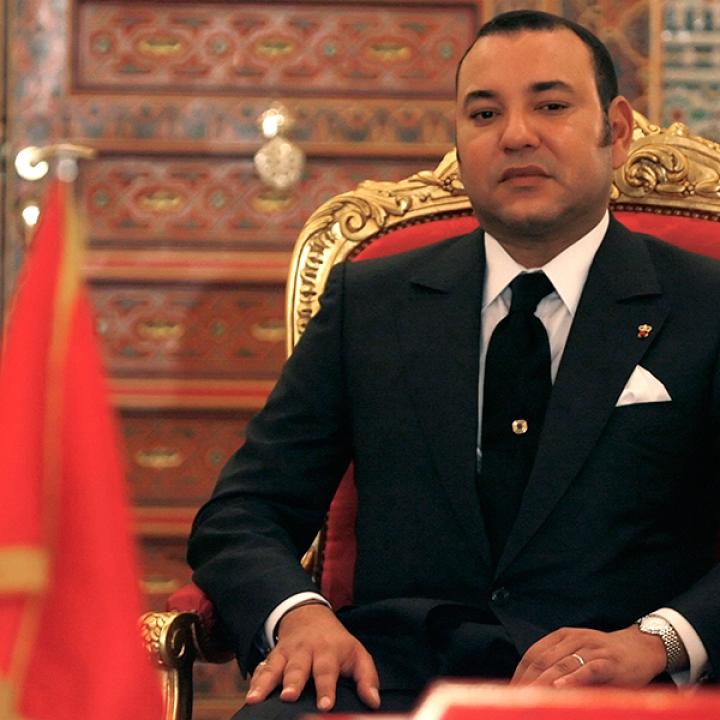
- Policy Analysis
- Fikra Forum
Regional Instability and the Sahara Conflict

April 15, 2016
The last few weeks have witnessed increased tensions over the Sahara conflict – a more than forty year long dispute between Morocco and the Algerian-backed separatist group Polisario Front, which seeks independence for Morocco’s southern provinces. Although a ceasefire between sides has held since 1991, subsequent attempts to negotiate peace have been unsuccessful. The United Nations (UN) has called for a negotiated political solution to the conflict for at least a decade, but UN Secretary General Ban Ki-moon’s recent visit to Algeria and the Polisario-run refugee Tindouf camps has only complicated matters. Moreover, Ki-moon’s statements and actions violated the UN’s neutrality and commitment to a mutually acceptable political solution to the conflict. This has set off a series of strong responses from Moroccans - justifiably so.
Unfortunately, this incident fits the standard pattern of fixation on recent developments over the Sahara in isolation instead of examining the issue as one part of a broader regional security dynamic. Even the UN Security Council has sought a bilateral solution to the current diplomatic incident at the expense of a regional approach. The President of the Security Council and Angolan Ambassador Ismael Gaspar Martins has mentioned on several occasions that talks over the Sahara will continue solely on a bilateral basis between individual members of the Council and Morocco. While that approach may be necessary to push through the current impasse, the Sahara issue should not be seen as isolated from the context of regional instability. Accordingly, the surrounding conversation needs to be expanded to address the broader impasse – the roots of the Sahara conflict itself.
The Sahara conflict hinders regional cooperation and integration, with grave implications for cooperative security in a part of the world full of major security challenges that require comprehensive regional solutions. I recently participated in an event on violent extremism in the region at the Washington D.C. National Press Club. Its participants reached the same conclusion: whether the threat is from al-Qaeda in the Islamic Maghreb, ISIS, Boko Haram, or the return of foreign fighters from Iraq and Syria, a regional approach is essential. This strategy applies far beyond the Middle East, from confronting drug trafficking linked to Latin cartels to taking on the organized transnational criminal networks fueling this sordid combination of terrorism, drug trafficking, and human smuggling.
Regrettably, in the Maghreb the conditions for cooperation do not always exist due to antiquated thinking, particularly over the Sahara. The closed border between Morocco and Algeria has impacted most regional relationships. For example, Tunisia, Libya, and Mali are forced to develop security strategies with both countries separately at the expense of a more effective coordinated regional strategy. The exclusion of Morocco from the Algerian-led Regional Command for Joint Counterterrorism Operations (CEMOC) further highlights the problem. Such a regional strategy cannot be successful when one of the strongest counterterrorism players is excluded. CEMOC’s last six years have demonstrated this to be the case.
Add to this mix Algeria’s uncertain political future, its historical precedent of resolving political dynamics with violence, and the Polisario’s recent threats to war; the urgency of a region-wide resolution to the Sahara issue becomes all the more apparent. Tensions in Morocco due to Ki-moon’s Algeria visit are at an all time high. They may prove explosive when mixed with Algeria’s building political turmoil in Algeria caused by Boutiflika’s illness and the resulting power struggle.
It is time to move away from historical paradigms in order to promote security, stability, and regional cooperation. And it is time to focus on ways to resolve the conflict and reinforce regional relationships in order to avoid further destabilization and to allow focus on addressing the real challenges of the region. Achieving a mutually acceptable political solution to the Sahara conflict is the only way forward.
Morocco is ready and willing. It remains open to strong cooperation and intelligence sharing with regional and international allies, as it has shown through recent efforts with its African and European allies after the attacks in Grand Bassam, Côte d’Ivoire, Paris, and Brussels. And it remains open to reaching a mutually acceptable political solution to the Sahara. The Moroccan government has proposed a plan for autonomy under Moroccan sovereignty that has been widely praised as, “serious, realistic, and credible,” and has also demonstrated its commitment to the development of the territory.
But getting to this point requires breaking out from the current impasse through the leadership of the UN Security Council, thereby ensuring the peacekeeping mandate of the United Nations Mission for the Referendum in Western Sahara (MINURSO). Progress also requires a report from the Secretary General that calms, rather than enflames, tensions and a standard MINURSO rollover. From there, political goodwill and effort is required from all stakeholders for a deeper and realistic engagement in a path to the eventual resolution of this conflict. These steps matter. Not just for the refugees who have been stuck in camps for over 40 years, but for the future of Algeria and Morocco as neighbors and for regional stability in the Maghreb.
Professor Mohammed Benhammou is President of the Moroccan Center for Strategic Studies. This item was originally published on the Fikra website.
Fikra Forum


